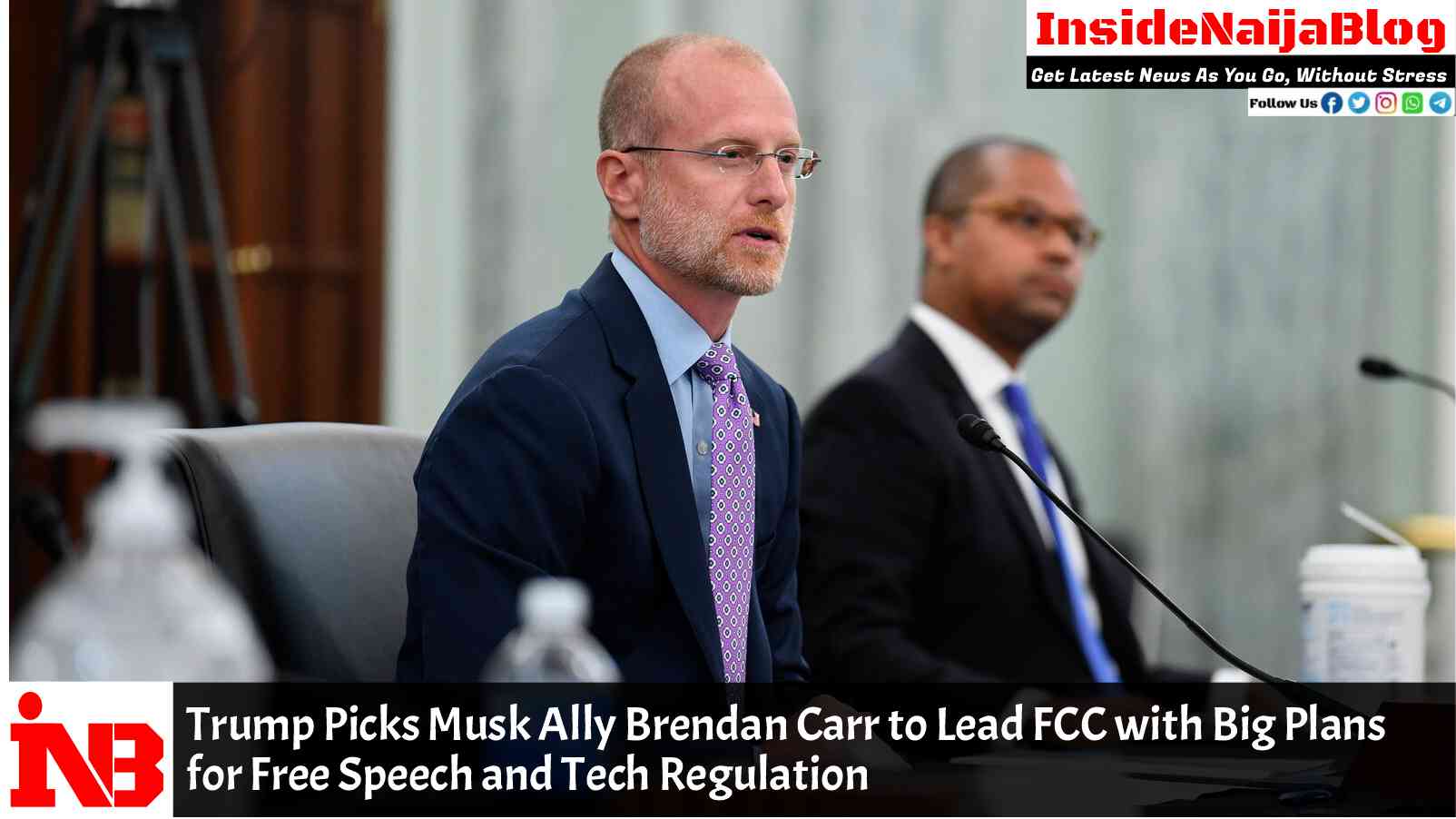President-elect Donald Trump has named Brendan Carr, a Republican known for his fierce criticism of big tech and ties to Elon Musk, as the next chairman of the Federal Communications Commission (FCC). In a Sunday statement, Trump praised Carr as a “warrior for Free Speech,” vowing that his leadership would dismantle regulations that stifle innovation, protect rural communities, and restore freedoms for Americans.
A Musk-Backed Free Speech Advocate
Carr, a longtime FCC commissioner, is an outspoken critic of major tech firms like Google, Meta, and Apple, which he accuses of orchestrating what he calls a “censorship cartel.” His vision aligns closely with Trump’s pledge to combat perceived political bias and protect free speech rights. On X, Musk’s social platform, Carr expressed gratitude for the appointment, emphasizing the need to “restore free speech rights for everyday Americans.”
Carr’s collaboration with Musk has been notable, especially as Starlink, Musk’s satellite internet service, seeks federal funding. In 2020, Starlink was awarded an $885 million FCC grant, which was later rescinded by the Democrat-led commission. Carr criticized the decision, framing it as political bias against Musk, and vowed to reverse such practices.
A Push for Bold FCC Reforms
Carr’s leadership comes with a promise to reshape the FCC’s priorities. He outlined a four-point agenda in the conservative Heritage Foundation’s Project 2025, envisioning:
- Reining in Big Tech: Advocating for stricter regulations on tech giants like Google, Meta, and Apple to curb their influence over content moderation and market control.
- Promoting National Security: Ensuring U.S. telecommunications infrastructure is safe from foreign interference.
- Unleashing Economic Prosperity: Reducing regulatory barriers to spur innovation and create jobs, particularly in rural areas.
- Ensuring FCC Accountability: Implementing measures to make the agency more transparent and responsive to public concerns.
Carr’s focus on deregulation aligns with Trump’s broader goal to strip broadcast networks of licenses for alleged political bias, an issue that gained traction during the campaign. Trump has repeatedly criticized networks like ABC, NBC, and CBS for their coverage, calling for punitive measures against outlets he views as unfairly critical.
Controversy Over Censorship and Big Tech
Carr’s stance on big tech has drawn both support and skepticism. His repeated claims that tech companies like Facebook and Apple are part of a “censorship cartel” have resonated with conservative audiences, especially in light of debates over content moderation and free speech. However, critics warn that targeting big tech could lead to overreach and potentially harm innovation.
Carr has also been vocal about the FCC’s role in fostering competition and connectivity in rural areas. His opposition to revoking Starlink’s funding highlighted his commitment to expanding internet access to underserved communities, a priority that aligns with Trump’s agenda to improve infrastructure in rural America.
From FCC Commissioner to Chairman
Carr’s journey at the FCC began in 2012, and he was appointed as a commissioner by Trump during his first term in 2017. A lawyer by training, Carr specialized in regulatory issues before joining the FCC, building a reputation for his expertise in telecommunications law and policy.
As chairman, Carr is expected to lead a Republican-majority FCC with a bold mandate to reshape the agency’s direction. His leadership will likely spark debates on the future of U.S. communications policy, the balance between free speech and regulation, and the role of big tech in public discourse.
A New Era for the FCC
Carr’s appointment signals a dramatic shift in the FCC’s priorities under Trump’s second term. With plans to challenge big tech, reform licensing policies, and enhance rural connectivity, Carr is poised to become a central figure in Trump’s broader efforts to reshape American communications and media. As his tenure begins, the FCC is set to take on some of the most contentious issues in the modern digital landscape.


